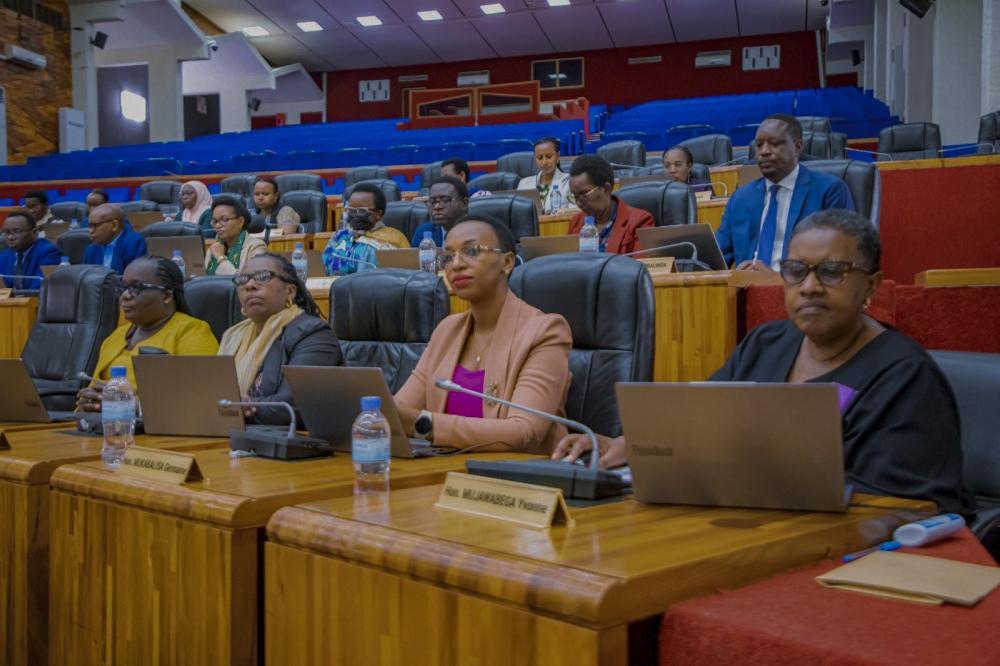Africa-Press – Rwanda. Rwanda has doubled its capital gains tax from 5 per cent to 10 per cent under the new law that was passed by members of the parliament on Tuesday, April 29, as part of the government’s plan to expand the tax base.
“These tax reforms are part of broader fiscal measures aimed at increasing the tax-to-GDP ratio to 21.5% by 2050, in line with Vision 2050 and the National Strategy for Transformation (NST2),” saidMP Odette Uwamariya, the Chairperson of the Committee on State Budget and Patrimony during the passing of the law.
“We must continue to mobilise domestic resources if we are to meet our long-term development goals,” she added.
According to the Ministry of Finance and Economic Planning, the revised rate applies to gains from the sale or transfer of shares, licenses, debt instruments, options, guarantees, and similar assets.
Companies or individuals involved in such transfers must declare and pay the tax within 15 days after the end of the month in which the transaction occurred.
Although this is a significant jump, the rate, which will take effect in the coming 2025/26 financial year, still lags behind most countries in the region.
During the passing of the draft law on capital gains, MP Uwamariya explained that despite the adjustment, the 10 per cent capital gains tax remains comparatively low when measured against its East African neighbors.
Capital gains tax stands at 15 per cent in Kenya, 30 per cent in Uganda, and 30 per cent in Ethiopia, and 10 per cent in Tanzania.
Gambling sector
The reforms also targeted the gambling sector. Companies in this sector, previously exempted from corporate income tax, will now be required to pay a 40 per cent tax calculated on the difference between amounts wagered and winnings awarded.
Additionally, the withholding tax on gambling winnings has risen from 15 per cent to 25 per cent.
Godfrey Kabera, Minister of State in Charge of the National Treasury at the Ministry of Finance and Economic Planning, defended the move, saying, “Gambling has economic value, and we aim to grow the sector, but it must be done responsibly, with minimal social harm.”
The Rwanda Development Board (RDB), the industry regulator of gambling assured stakeholders of simplified tax compliance through the consolidation of previously separate levies such as value-added tax (VAT) and corporate income tax (CIT).
An analysis by the committee on state budget and patrimony revealed that since 2013, the gambling sector generated over Rwf260 billion in revenue but only contributed Rwf8 billion in taxes. This gap, coupled with the influx of foreign operators fleeing stricter regulations elsewhere, prompted the government to act.
The Private Sector Federation (PSF) acknowledged the need for reform but warned against sudden increases.
“Our concern lies in the sharp jump from previous rates. This could push some actors to operate informally,” a PSF representative said.
The federation has instead proposed a gradual rise of 16 per cent in 2025, 20 per cent in 2026, and 26per cent in 2027.
Members of Parliament, including Théogène Munyangeyo and Jean Claude Ntezimana, voiced strong concerns about gambling’s social impact.
Munyangeyo noted that many people now use mobile phones and betting application to gamble, sometimes losing significant sums.
He also stated that someone can win a motorbike worth Rwf2 million and pay no tax, but another who wins the same amount in cash is taxed and urged this disparity to be addressed.
MP Ntezimana, on the other hand, said that gambling can lead to significant losses for those who engage in it, and taxing it is a way to recognize its impact.
“We should establish measures that discourage gambling and instead encourage people to seek income through more productive means,” he emphasised.
Beyond gambling and capital gains, Rwanda also introduced a 1.5 per cent tax on gross revenue from digital service providers with substantial presence in the country.
According to the government, the reforms reflect a broader shift toward adapting tax policy to a modern economy while striving for equity and efficiency.
For More News And Analysis About Rwanda Follow Africa-Press






